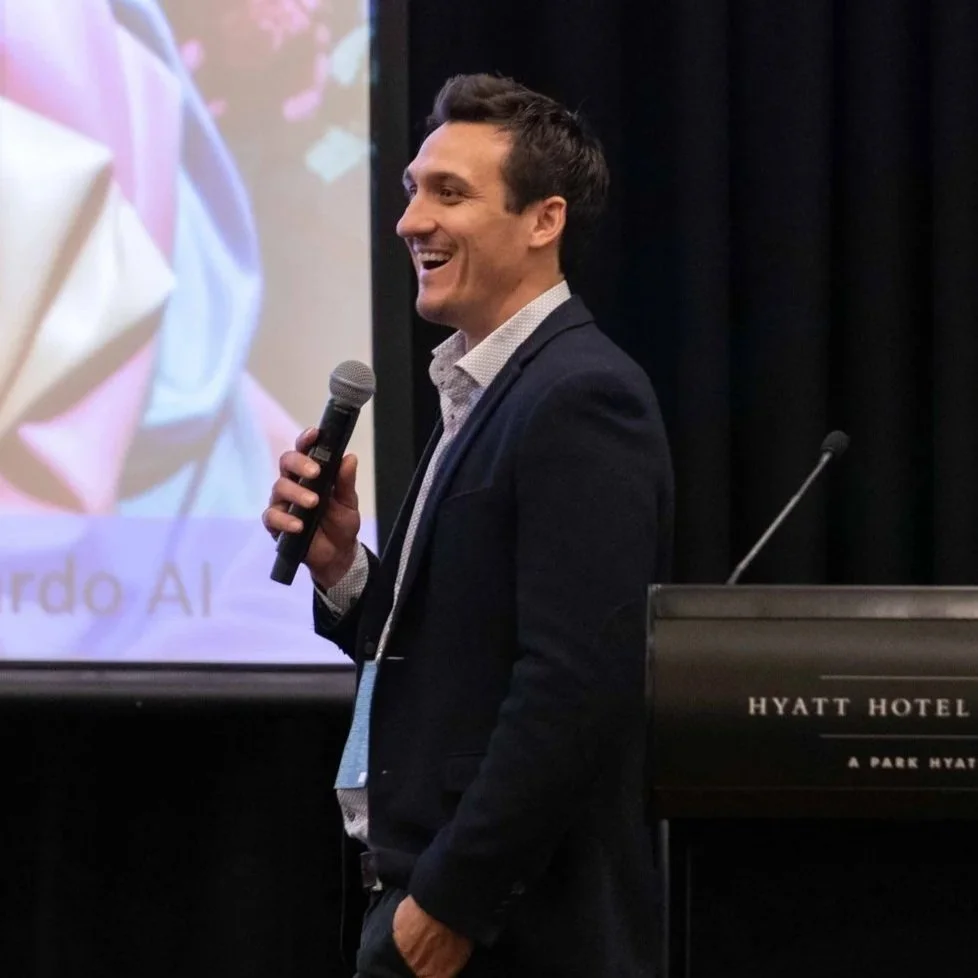Dr. Rian Roux
Educator | Researcher | Speaker | Consultant | Author
About me
Originally from South Africa, I immigrated with my family in the mid-1990s and spent my adolescence in a small fishing and farming community in Far North Australia. I now live in Toowoomba, QLD, with my wife and our four wonderful children.
I am fascinated by the ancient and modern stories we inhabit, and by how our character, values, and beliefs might be formed and transformed. I am curious about how we can shape communities, cultivate culture, and navigate our rapidly changing world in ways that lead to truth, beauty, and goodness.
I have travelled widely, met incredible people and enjoyed vibrant communities and diverse cultures. I have also witnessed profound and systematic injustice that has left an indelible imprint on me, shaping my life in fundamental ways. I pursued formal studies in Applied Science, Education, and Theology in Australia, before spending a year in England at Wycliffe Hall and the Oxford Centre for Christian Apologetics. Herafter, I completed an award-winning PhD on the philosophical and empirical foundations of transformative learning and student leadership development.
My work has spanned primary, secondary, and tertiary education, business start-ups, social enterprise, and pastoral ministry. I enjoy collaborating with organisations and scholars who seek to address the wicked problems of our time, who actively serve the most vulnerable and marginalised, and who have a vision for doing things differently.
I am currently a Senior Lecturer (Pathways) at the University of Southern Queensland, where I also serve as Lead of The Welcome Academy for Humanitarian Migrants.
My research interests include:
educational philosophy and theory – particularly virtue epistemology, transformative learning, adventure education, community and leadership development.
artificial intelligence – especially its implications for learning, teaching, and research.
refugee education – with a focus on the scholarship of engagement, pedagogies of care and learning for democracy.
philosophy and theology – particularly Christology, and the nature, formation, and transformation of faith.
Publications
Original Manuscripts | Collaborations | Open Educational Resources |
Book Projects
-
Our current cultural climate is marked by a convergence of pressing issues, including the rise of the post-truth situation, which has recently been described as an epistemic crisis (Hoggan-Kloubert & Hoggan, 2023). This conceptual paper outlines why adult education institutions must reclaim the pursuit of truth as undergirded by rationality, autonomy, and pluralism as a core educational aim and presents a particular pedagogical conceptualisation for doing so. It is proposed that transformative approaches are uniquely positioned to address some of the issues associated with the post-truth situation; however, to be both applicable and accountable within participatory democracies, such efforts also need to be philosophically coherent, practically ethical, and incorporate opportunities for students to critically evaluate ideas, and related values and beliefs against the test of truth. To this end, a reconceptualisation of the axiological, ontological, and epistemological foundations for transformative learning is presented.
https://doi.org/10.1177/15413446241268550 -
This paper explores the intersection of transformative learning and virtue epistemology within the context of education for democratic society. Drawing on historical and contemporary scholarship, it is argued that the cultivation of intellectual virtues such as intellectual humility, curiosity, courage and tenacity are essential for fostering the critical thinking and reflective capacities necessary for robust democratic participation. Through theory building and theory testing, a heuristic of transformative learning as a journey of deconstruction and reconstruction, underpinned by intellectual virtues, is presented and substantiated. The empirical component of this paper examines the transformative experiences of former student delegates at the National Student Leadership Forum (NSLF) in Australia, through a mixed-methods retrospective case study. The findings offer a novel framework for researching and discussing transformative learning, and these have unique implications for education in democratic societies, particularly given the post-truth situation which has emerged in recent times.
-
The emergence of the ‘post-truth’ era has highlighted the urgent need for robust educational strategies (Barzilai & Chinn, 2020; Bell, 2017; Peters, 2017). Transformative educational approaches are uniquely positioned to address these challenges, as they not only build on existing knowledge but also entail a fundamental shift in core ontological and epistemological beliefs (Mezirow, 2018[2006], p. 116). It is essential, however, that such initiatives align with democratic values, uphold the pursuit of truth as a core educational aim, and are conceptually validated through empirical research. To this end, this paper reviews evidence from a mixed- methods retrospective case study that, while tentative, indicates the validation of a conceptualisation of transformative learning that includes the test of truth (Roux, 2025). The findings suggest that this distinct learning phase may encompass multiple forms of epistemic reasoning, specifically those related to correspondence and coherence theories of truth.
https://doi.org/10.1177/1541344625133805
-
Building on three interconnected fields of inquiry, the scholarship of engagement, student leadership development and transformative learning theory, this thesis addresses an extant gap in knowledge pertaining to how universities can implement ethically accountable and applicable methods of student leadership development in a time of accelerating change. This is achieved through the construction of an evidence-based conceptualisation of a transformative approach to student leadership development for Australian higher education. The research focused on a specific leadership education event, the National Student Leadership Forum (NSLF), and used purposive sampling to investigate the transformative experience of 20 former-student delegates at these events between 1998 to 2018. Through the process of theory building and theory testing, this study resulted in contributions to philosophical, theoretical, methodological, policy and practical knowledge for the consideration of Australian universities.
https://doi.org/10.26192/w8v22
-
The rapid adoption of generative artificial intelligence (GenAI) in research presents both opportunities and ethical challenges that should be carefully navigated. Although GenAI tools can enhance research efficiency by automating tasks such as literature reviews and data analysis, their use raises concerns about aspects including data accuracy, privacy, bias, and research integrity. This paper proposes the ETHICAL framework, which is a practical guide for responsible GenAI use in research. Employing a multi-stage single case study design, we examine multiple GenAI tools in real research contexts to develop the ETHICAL framework, which consists of seven key principles: Examine policies and guidelines, Think about social impacts, Harness understanding of the technology, Indicate use, Critically engage with outputs, Access secure versions, and Look at user agreements. Applying these principles will enable researchers to uphold research integrity while leveraging the benefits of GenAI. The framework addresses a critical gap between awareness of ethical issues and practical action steps, providing researchers with concrete guidance for ethical GenAI integration. This work has implications for research practice, institutional policy development, and the broader academic community as researchers adapt to an AI-enhanced research landscape. The ETHICAL framework can also serve as a foundation for developing AI literacy in academia and promoting responsible GenAI adoption in research settings.
https://doi.org/10.37074/jalt.2025.8.2.9
-
This guide is designed to assist secondary school teachers and administrators to navigate rapid changes in technology while fostering academic integrity in their school setting. Like many educators, teachers at The Glennie School in Toowoomba have been navigating both the challenges and the potential benefits of Generative Artificial Intelligence (GenAI). This open resource has been developed based on these first-hand experiences, in partnership with a team of researchers from the University of Southern Queensland.
Taking a technology neutral approach, the guide does not advocate for banning or embracing particular technologies on principle, but rather seeks to explore ways in which student learning can be reinforced, or even enhanced in the age of GenAI. This requires approaches that are equitable, ethical and pedagogically sound. The guide is organised around the Australian Curriculum’s General Capabilities to highlight how all learning areas can develop academic integrity whilst also responsibly embracing the exciting opportunities offered by new learning tools. Policy documents and other resources are included to support the development of such approaches, although these may require adaption to your learning context, or as new technologies emerge.
This is an Open Educational Resource (OER). This means that you are encouraged to share and adapt it. Given the speed of change in the technological landscape, we need to work together to share learnings and resources for the benefit of as many schools as possible.
-
Through an autobiographical lens, this chapter explores the potential of disorientation, the process of transformation and the challenges associated with researching a topic in which one is personally invested. I have found that, when it comes to deeply held values and beliefs, the academic landscape can be precarious, for there can be significant emotional and psycho-social consequences of undergoing transformative learning. It is in this space that the identity and occupation of the researcher interact in significant ways, which raises important questions relating to reflexive practice: Have I considered the potential personal cost involved in my research; and am I prepared to maintain a professional degree of critical distance from my subject matter, allowing the evidence to guide me and my colleagues to challenge me?
https://doi.org/10.1007/978-3-030-53857-6_5
-
Have you ever seriously questioned Christianity?
If so, you're not alone. A lot of people have wondered if this faith is outdated . . . irrelevant . . . maybe even harmful. But what if everything is not as it seems? What if there's more to the story?
Questioning Christianity explores the nature and relevance of the Christian story in an accessible and compelling way. No slogans. No politics. No simple solutions to complex problems. After many years of exploring issues of faith with skeptics, seekers, and new believers, Dan Paterson and Rian Roux serve as guides to help you navigate what can be a disorienting and confusing journey.
Perhaps you're feeling lost, unable to find your bearings, and you need some help to map out the terrain around you. Or maybe you've encountered obstacles and have hard questions that need to be addressed before you can move ahead. Whatever it is that has made you curious about this faith, there are good answers waiting to be discovered. So go ahead. Question Christianity. Just give Christianity the chance to answer back.
-
International Collaboration: https://doi.org/10.55578/fepr.2509.008
Abstract
This article examines intuitive psychology, the subconscious ability to infer others' emotions and beliefs, its development in children, and the impact of AI. As AI becomes an "external other," children encounter new social dynamics, influencing their understanding of mental states, social cognition, and critical thinking. AI systems like chatbots and robots mimic human responses, raising concerns about distinguishing real from artificial interactions. While AI offers developmental opportunities, it also presents challenges related to empathy, digital literacy, and over-reliance. The paper proposes a comparative study of children in North Yorkshire, UK, and South East Queensland, Australia, to explore AI's effects. It highlights ethical issues, such as AI bias and evolving human-AI relationships, emphasising the importance of responsible AI integration to support children’s social and emotional growth.
Keywords:
Intuitive Psychology; AI; Child Development; Theory of Mind; Comparative Study; North Yorkshire; South East Queensland
-
Abstract
The widespread free access to generative artificial intelligence (GenAI) has radically shifted the educational landscape. Schools find themselves largely unprepared to navigate this new terrain: both in understanding how to harness the potential of GenAI for educational enhancement and developing strategies to ensure student integrity in demonstrating authentic learning outcomes. This study reports on a design-based research collaboration between a regional Australian university and a secondary school to address these challenges through policy and practice innovation. The aim was to both promote and maintain academic integrity, alongside considering how GenAI might be harnessed for educational benefit and lifelong learning. Over six months, researchers and educators worked collaboratively to analyze school staff needs using a whole-school survey and focus groups, followed by co-design of policy and pedagogical responses, which were iteratively tested and refined. Key findings revealed that staff required clear guidance on acceptable GenAI use, consistent policy enforcement, and professional learning. The project has resulted in the development of policy, procedure, and support resources that have been released as an Open Education Resource. The findings offer practical insights for schools navigating GenAI integration and contribute to broader discussions on educational change, assessment validity, and ethical technology use.
Burke, K., Bedford, A., Roux, R., Scott, E., Thomas, J., & Chamlin, T. (2025). Designing school policy and practice for academic integrity in the age of GenAI: A design-based research project in a regional school. International Journal of Changes in Education https://doi.org/10.47852/bonviewIJCE52026912
Current Projects
-
Original Manuscript
Planned Outputs:
Journal Article
Conference Presentation
-
International Collaboration
Planned Outputs:
Journal Article
-
International Collaboration
Planned Outputs:
Conference Presentation
Journal Special Edition
Edited Book
-
International Collaboration
Planned Outputs:
Established Welcome Academy
Journal Articles
Open Educational Resources
Conference Presentations
-
International Collaboration
Planned Outputs:
Edited Open Book
-
Collaborative Study
Planned Outputs
UniPrep Welcome Day
Journal Article
Conference Presentation
-
Original Manuscript


